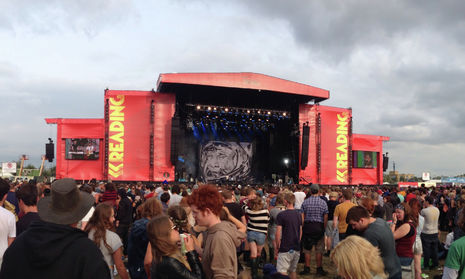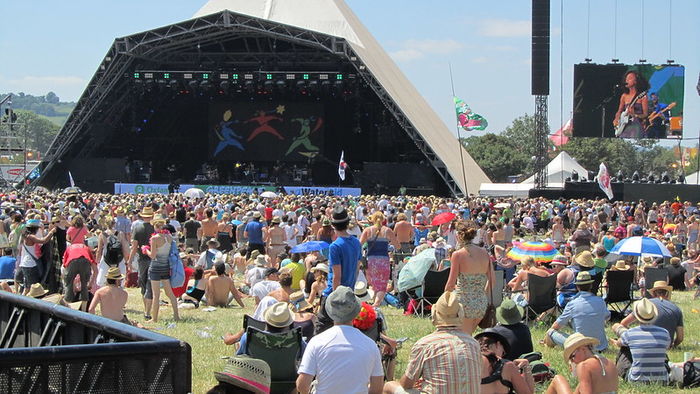Reading and Leeds: A rite of passage
The power of the festivals lies not in the music but in the first taste of freedom its teenage attendees experience

Reading – and its progeny Leeds – are well-established rites of passage in the UK. It may be one of the only experiences that most newly arriving freshers share, considering their disparate backgrounds. The festivals know their role, cleverly starting on GCSE results day and functioning either as a celebration or a distraction from disappointment. This means there is little need to convince people to purchase tickets. It’s perhaps the festival where the line-up matters least, which may explain its consistent peculiarity. Not only is there an annual discourse about how much worse the headliners have become, but the timetabling of acts is often perplexing.
“Surely, it would have made more sense to move some hip-hop acts to headline slots”
Firstly, for a festival so painfully aware that it is for teenagers, some of the bookings are confusing (“My dream act at Reading is Foals” is a sentence I doubt a sixteen-year-old has ever uttered). However, what’s more irritating is when the choices feel relevant, but the timetabling undermines them. Surely, the aim of the mainstage running order should be for fans to be able to stay in their hard-earned spots and enjoy a cohesive selection of artists. Last year provided a great example of this, with Fontaines DC preceding Wolf Alice and Arctic Monkeys. These bands have compatible fanbases, meaning festivalgoers could remain by the stage throughout the headlining hours. Conversely, this year saw Central Cee bafflingly open for The Killers.
A greater issue is the way the two main stages operate. At Glastonbury, the Pyramid, Other and West Holts, stages offer different genres so that people who don’t like rock, for instance, aren’t forced to see it. Saturday night this year saw Guns N’ Roses, Lana Del Rey and Loyle Carner occupy these slots, meaning there was something for everyone. Reading and Leeds comparatively offered Sam Fender or Foals, The Killers or The 1975, and Billie Eilish or Imagine Dragons. Surely, it would have made more sense to move some hip-hop acts to headline slots instead of offering two pop/rock acts each night. Lewis Capaldi’s last minute removal provided the perfect opportunity to improve the line-up by making Central Cee a headliner, for instance, and rectifying the lack of hip-hop acts at the top of the bill. However, this chance was fumbled by someone who felt that celebrating the anniversary of The 1975’s debut album was more crucial.
“You could see how much the audience worshipped Bakar from the moment he stepped on stage”
Nevertheless, many of the performances themselves were outstanding. Loyle Carner finished his run of summer festivals in style with a show drawing significantly on his recent Mercury-nominated album hugo. However, his beautiful set and lighting were slightly undermined by how bright it still was. Knucks, who also released a great rap album last year, suffered from a lack of energy at the start of his set, which can partially be blamed on the crowd, who didn’t seem to know many of his songs. Whatever caused this lull certainly wasn’t his early set time as, even at home, you could see how much the audience worshipped Bakar from the moment he stepped on stage – and rightfully so as he gave a performance worthy of a higher billing on return. And (although not streamed) I have it on good authority, namely my little brother who went this year, that Shy FX and Ethel Cain were standouts. Lastly, Wet Leg, who surprisingly announced their retirement during their set, showed why Olivia Rodrigo drew on them so heavily in her latest single ‘bad idea right?’ with an extremely catchy set.
As for the headliners, Sam Fender’s voice was indisputably outstanding and, given his command of British youths, it was only right for Reading and Leeds to be his musical homecoming. Although Billie Eilish is not my favourite, she seemed to put on a much better show than at Glastonbury 2022. Nevertheless, we must consider the choice of The 1975 as a replacement headliner. Not only did they play last year, but frontman Matty Healy has rightfully received much criticism for his racist and sexist remarks, not least from another act at the festival, Rina Sawayama, who has called him out twice on stage. Why the music industry has decided en masse to ignore this is mystifying. If they had a reason, surely they would tell us. That they haven’t implies there is no rational excuse.
Overall, however, it is important to remember that the power of Reading and Leeds lies not in the music but in the first taste of freedom its teenage attendees get to experience. That is something the 2023 event cannot be critiqued for; it is present every year, rain or shine, The 1975 or Kendrick Lamar.
 News / SU reluctantly registers controversial women’s soc18 December 2025
News / SU reluctantly registers controversial women’s soc18 December 2025 News / Dons warn PM about Vet School closure16 December 2025
News / Dons warn PM about Vet School closure16 December 2025 Features / Should I stay or should I go? Cambridge students and alumni reflect on how their memories stay with them15 December 2025
Features / Should I stay or should I go? Cambridge students and alumni reflect on how their memories stay with them15 December 2025 News / Cambridge study finds students learn better with notes than AI13 December 2025
News / Cambridge study finds students learn better with notes than AI13 December 2025 News / Uni registers controversial new women’s society28 November 2025
News / Uni registers controversial new women’s society28 November 2025










